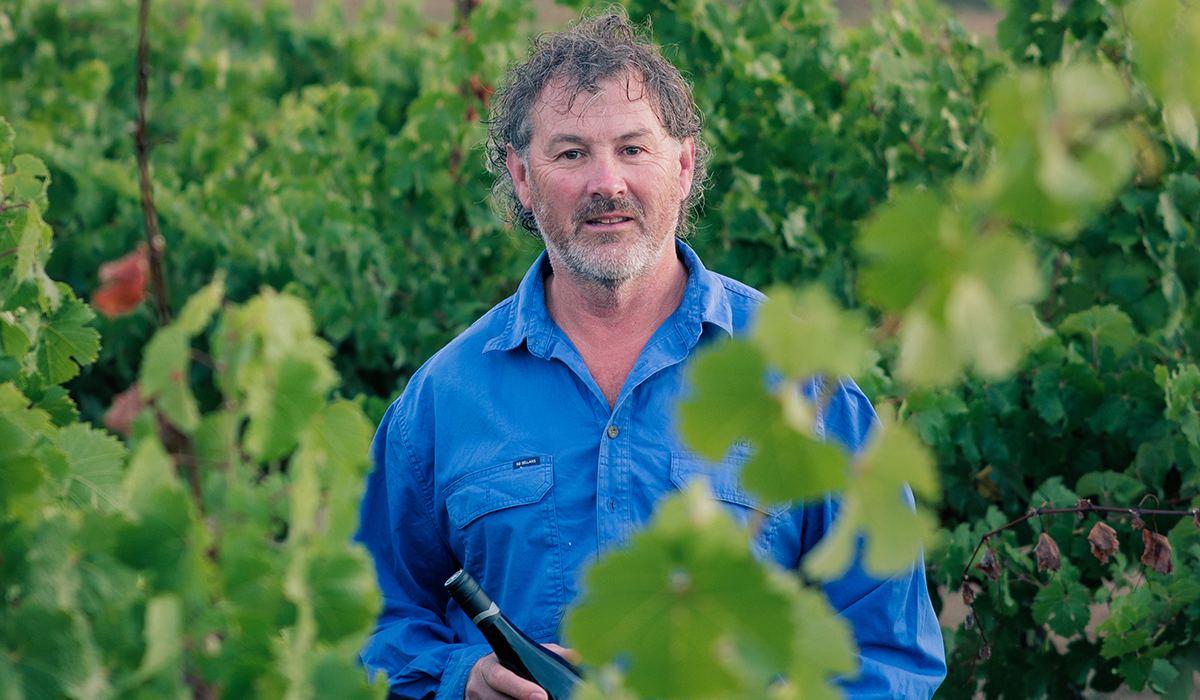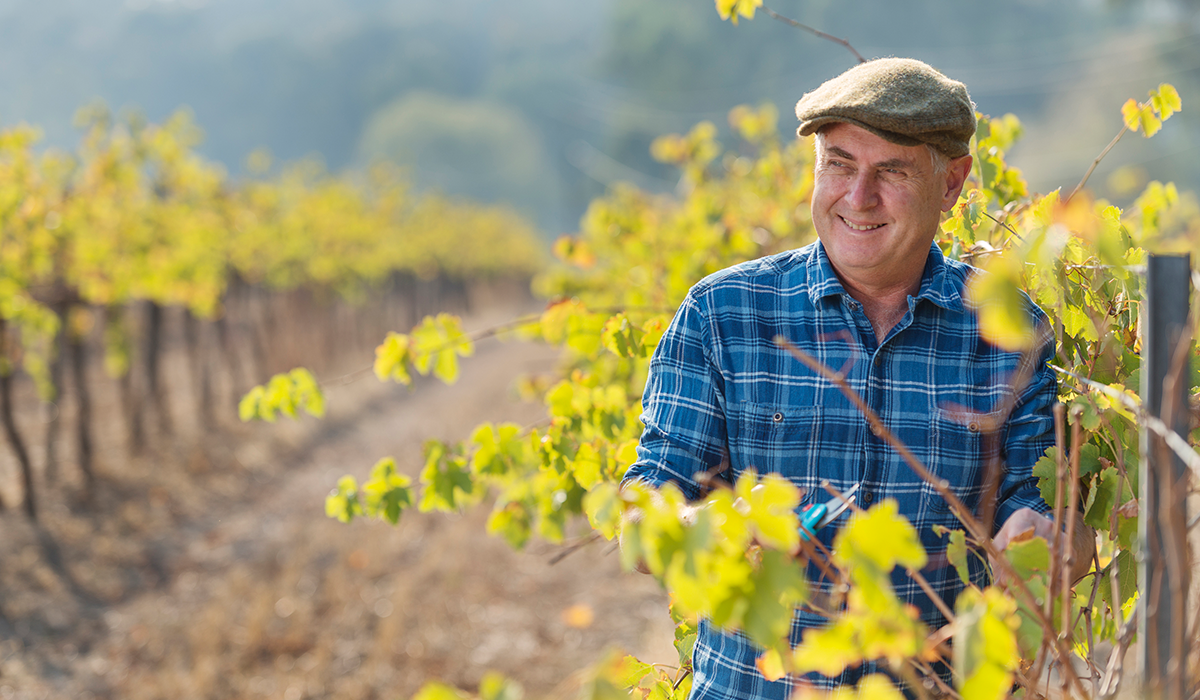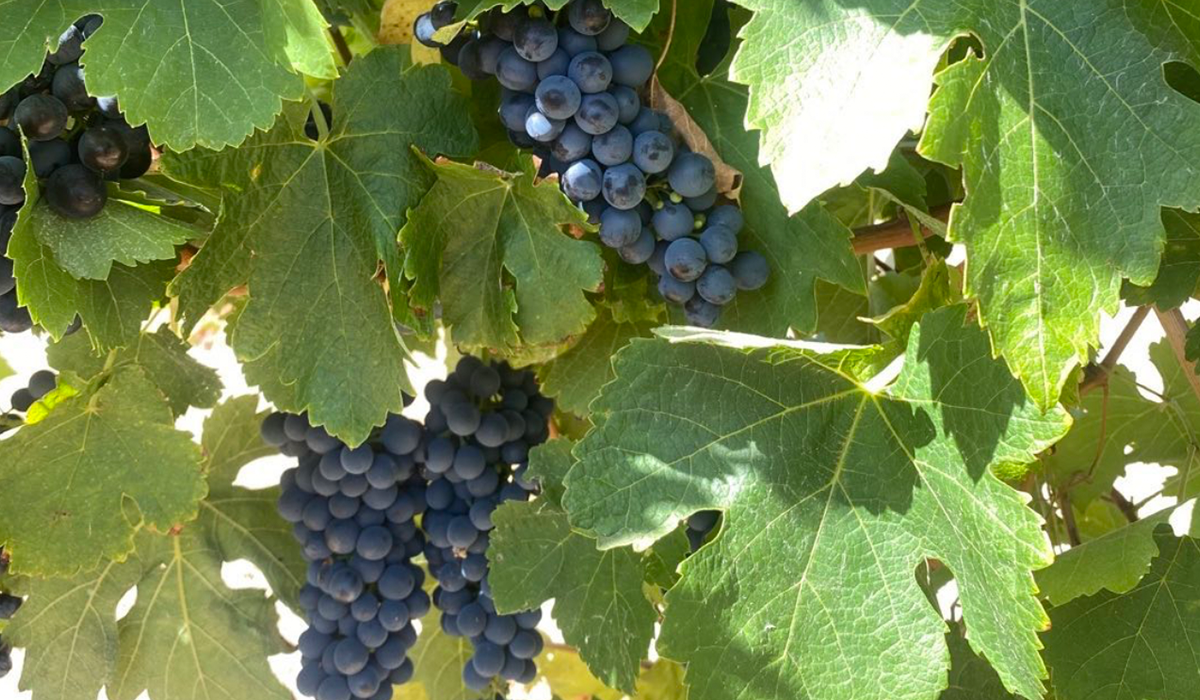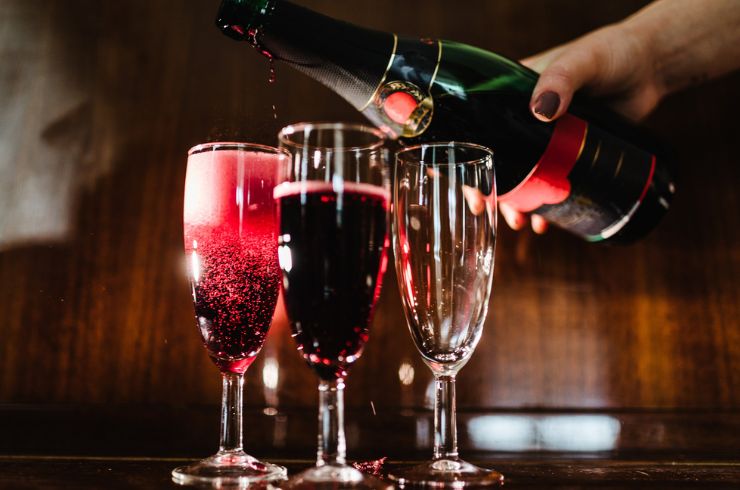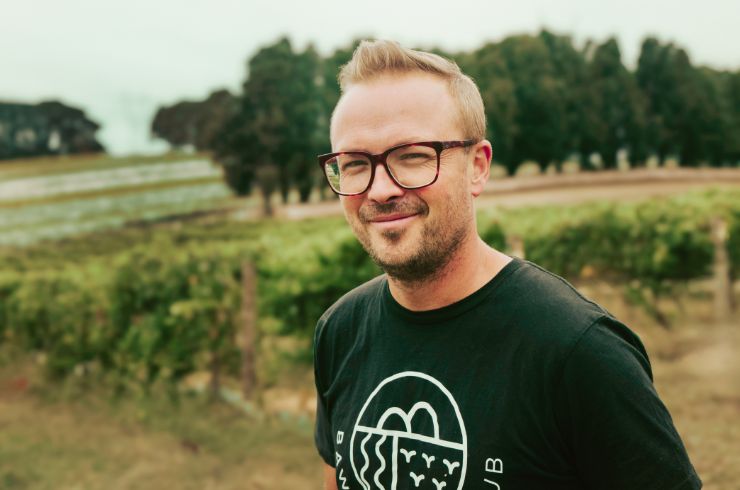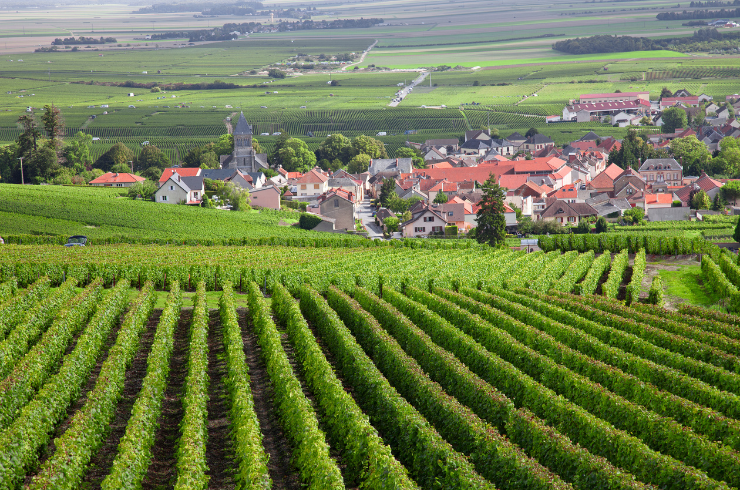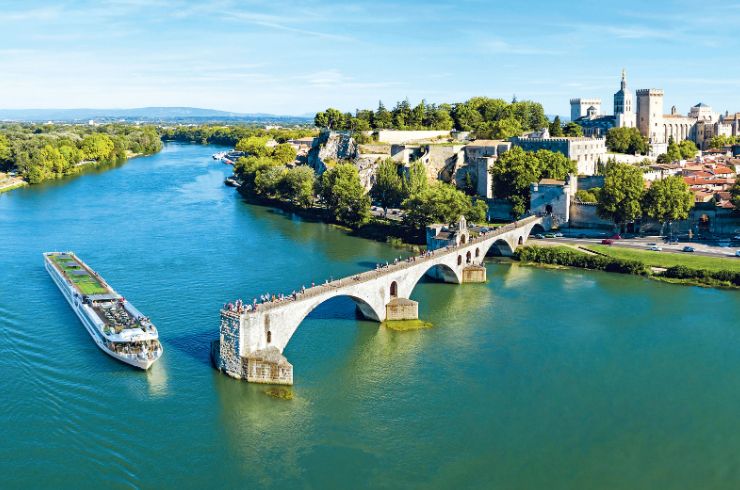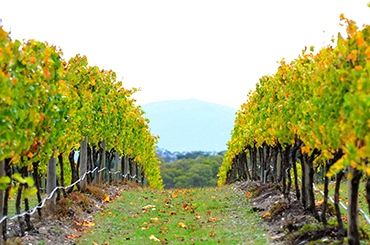Encounters with winemakers aren’t exactly rare in a wine writing life. When that life is lived in a wine region, it’s a daily occurrence.
Most are easy to spot. The faded workshirt, the shorts in the middle of winter, the Blundstones so worn in they’ve ceased to be footwear and have become a rubber-soled second skin. But then there are others not so easily recognised.
There’s one I see every morning at school drop-off, the one the kids all high-five as they run past and shout, “G’day Mr Shearer.” There’s another I see most nights on the news, a sober suit and a steely gaze steering a course for the country’s commerce through fickle trade winds.
There’s the one I call when a sharp eye and a gun license is needed to dispatch the ducks that like to shit all over my pool. His sombre but always efficient work is rewarded with my kitchen labours and several bottles I open to give context to his own.
And there’s one I see often when I close my eyes and reflect on what I’ve lost.
It’s the funny thing about living in a community with vineyard rows threaded through it. A large number of people in that community will set off for work with winemaking on their mind, but it doesn’t mean they’re all headed for wineries.
Peter Shearer
WykariPeter Shearer is headed to the Principal’s Office at St Joseph’s School. And he’s headed there bloody early. Peter is at his desk at 6am every morning and rarely gets up from it earlier than 6pm each night. It’s the only way he can manage the workload of a school principal with a wine label that’s got a lot bigger than it was ever meant to.
It started, as these things tend to do in places like this, with a conversation among friends that posed the question, “If we’re going to live here, surrounded by vines, why don’t we plant a few of our own?”
In the 18 years since, the other partners have stepped away and the Wykari label is now solely the responsibility of Peter and his wife Robyn, proprietor of one of Clare’s busiest hair salons, with a bit of help from their adult kids.
What might have started as a hobby has become pretty serious. Peter will crush 50 tonnes this year. The vineyard work, vintage chaos and ongoing issue of then having to sell it all, should be onerous for a man who already puts in 12-hour days at his real job, but somehow Peter manages to pull it all off at a very high level.
He spends most school holidays in his 4WD, loaded with wine and a swag, stopping to sell wine to pubs through the state’s mid-north and to the Flinders Ranges.
In a small winemaking community like this, the roles of educator and vigneron are easily entwined. On the day we spoke for this article, a day my seven-year-old told every kid in the playground and most of the staff his dad was coming to talk about wine with Mr Shearer, he’d had several conversations with kids about whether their vineyards had started veraison and a discussion with a winemaking mum at drop off about what kind of brandy spirit they needed to source for a fortified project they’re working on.
These are connections that transcend the standard routine of the schoolyard. They are connections built on a shared pursuit shaping so many in the community. The Wykari wines reflect the man. What I see I the schoolyard, I see in the wines. Dedication, diligence and genuine care.
Don Farrell
Farrell WinesDon Farrell’s not getting into his vineyard as much as he’d like these days – being the Federal Minister for Trade and Tourism doesn’t leave a lot of time for leaf plucking or shoot thinning – but the connection to his property at Sevenhill will always be strong.
It’s his decompression from the high-pressure world of politics and he calls the 90-minute drive north from Adelaide’s airport his “journey towards peace”.
“My doctor says it’s very beneficial to my health to be here, and he’s not just talking about medicinal benefits from the wine. It’s very useful to just take a bit of a break and get some dirt under the nails.”
Don’s family have a long connection to the region, so when he went looking for a country retreat back in 2010, there was little doubt where that would be.
When he and his wife Nimfa launched their eponymous label at the Sevenhill Hotel back in 2015, Don’s legendary powers of persuasion ensured the place was packed with powerbrokers, and by asking this writer and former PM Julia Gillard to speak at the event, he managed to pair a woman of substance with a substance claiming to be a man.
There’s a good reason why their top cabernet sauvignon is called ‘The Godfather Too.’
While the Farrells are required to step away from the wine business while Don serves as a Minister in the Albanese Government – the business is now in the hands of their distributor Ben Dineen and the wines are being made by the brilliant Kerri Thompson – Don is still deeply in tune with the seasonal rhythms of the vineyard, something that very much informs his thinking when discussing matters of global trade.
“I’d like to think that even our little slice of a winemaking life gives me some insight into this country’s winemakers and how best to further their interests.”
He certainly understands the diplomatic usefulness of a good bottle too. Since being appointed Trade and Tourism Minister in June 2022, Don has entertained the British Trade Minister at the vineyard and offered retreat to the Ukranian Ambassador who came to stay among the vines. He’s even found national benefit in the fellowship that unites all those who toil in vineyards, watching tensions in the Franco-Australian relationship ease when the French Trade Minister insisted, as a fellow vigneron, that Don visit his own vineyard in Alsace.
David Cook
Edilillie WinesDavid Cook moved to Clare to run a pub and then turned the large reservoir of natural charm at his disposal to do pretty well in real estate.
While he was selling places for others, he was buying some of his own. First a 1998-planted vineyard called Edilillie just north-east of Clare itself, then another at Gillentown, near Sevenhill, planted in 1965.
But what started as a hobby has become a full-blown obsession, and for the past year David has spent every available moment in these vineyards, reworking them for a future that will see the wines that come off them become his primary focus.
He has good reason to dive, boots and all, into this project.
A friendship with winemaker Michael Corbett, the barrel-chested and beardy gun behind the Vanguardist label, has led to Michael helping out with the winemaking and the impressive results have convinced David that these special vineyards deserve his full attention.
David still sells off a percentage of his fruit to eager winemaking customers, as he has for 15 years, but he’s increasingly focused on keeping the best stuff for his Edilillie label and, having spent so much time out in the vineyard that friends and family needed photos to remember what he looked like, the best stuff is really exceptional. This is a label to watch.
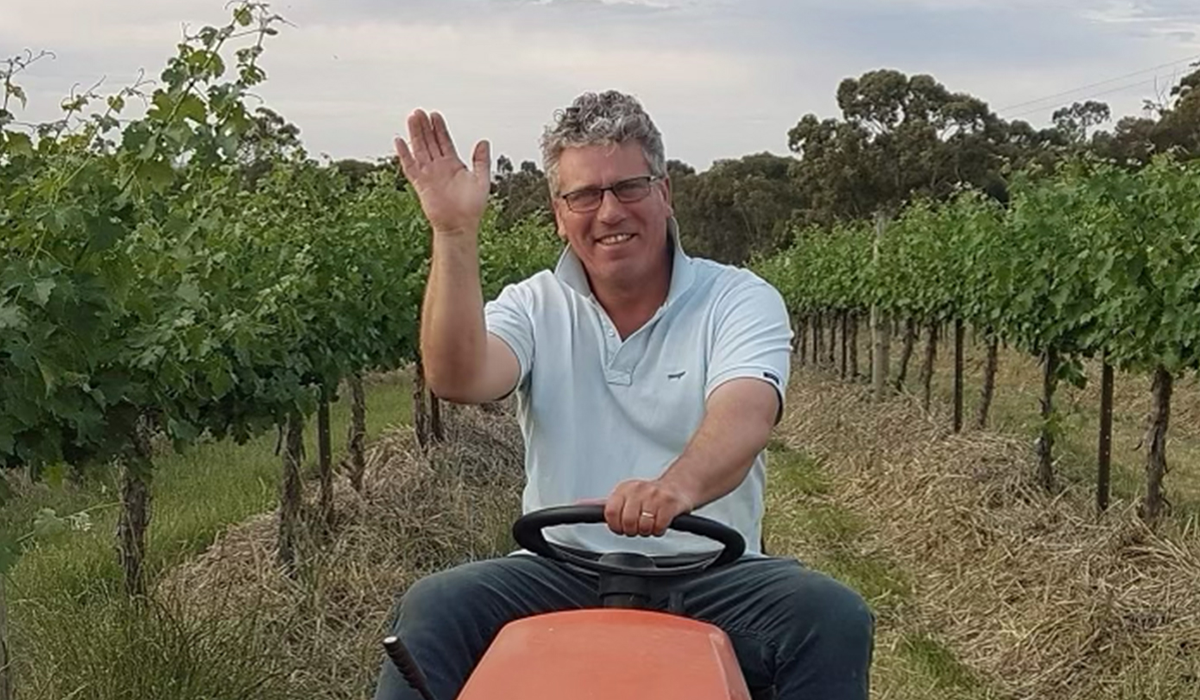
Tim and Angela Ruddenklau
Ruddenklau WinesNew Zealander Tim Ruddenklau came to the Clare for love and found it. Not just with the woman who lured him, but just about everyone in town he ever met.
Tim died suddenly in October 2021, but his legacy – the immaculately maintained vineyard, one of the highest in the Valley, that surrounds the house in which he and wife Angela raised their three kids – remains in place.
Tim was a grain trader and for a while we shared office space. I learned more about wheat, barley, beans and lentils than I ever really needed. I also learned a knock on the door at four o’clock meant talking to farmers all day had given Tim a thirst. And I learned Tim deeply loved Angela, his kids and that vineyard.
When he planted it, riesling was obviously the white option, and with the market screaming out for shiraz, that would’ve been the obvious choice too. But Tim planted cabernet sauvignon because the old timers whose advice he’d sought said that was the best red variety and Tim always respected the lessons that time taught.
He worked that vineyard tirelessly. He was genuinely proud of the wines he made from it, and he was right to be. He’d be even prouder that Angela and the kids, with a little help from the friends who loved him, are carrying it on. I loved every bottle I shared with him. I just wish I could have one more.
This article appears in issue #69 of Halliday magazine. Become a member to receive the print publication as well as digital access.
